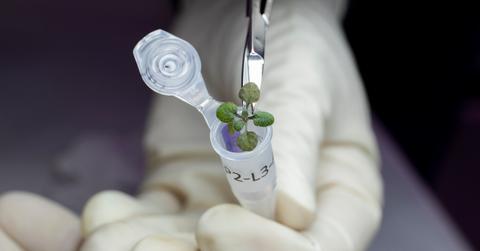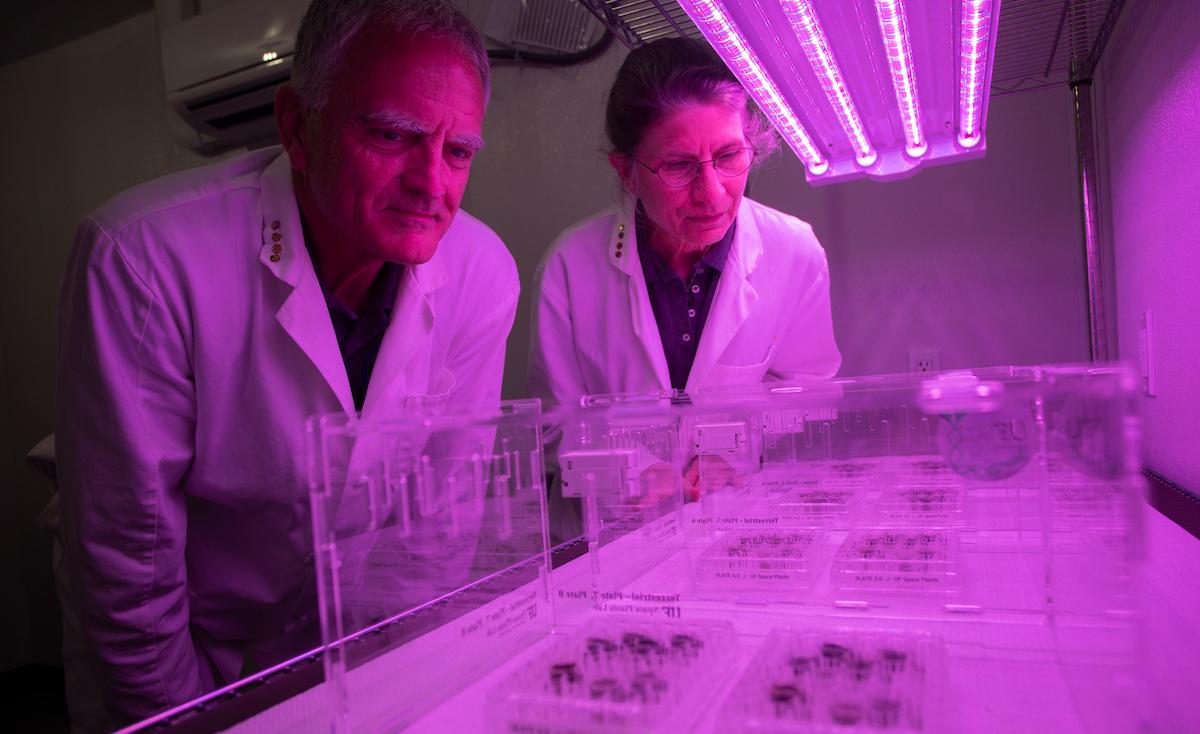For the First Time, Scientists Have Grown Plants in Moon Soil — Taken From the Apollo Missions
Published May 17 2022, 12:07 p.m. ET
While some outer space-loving humans are still holding out hope that we’ll one day discover extraterrestrial life, in the meantime, scientists have discovered how to grow plants in moon soil — and it’s not just any soil. It’s soil collected from the moon during the iconic Apollo spaceflights, five decades ago.
Could this discovery be an indicator that the moon could one day sustain life? Here’s what we know.
Plants have officially been grown in moon soil, aka lunar regolith.
University of Florida scientists published a study on May 12 in the journal Communications Biology, detailing their unique experiment. For the study, which was funded by NASA, the researchers used samples of lunar regolith taken from the Apollo 11, 12, and 17 moon landing programs. Lunar regolith, aka lunar soil, refers to the layer of rock material that covers the surface of the moon, as per Lunar Sourcebook.
Now, 50 years after those famous missions, NASA still has a reserve of the lunar soil that astronauts brought back to Earth. University of Florida’s Anna-Lisa Paul, Stephen M. Elardo, and Robert Ferl used teaspoon-sized samples of this lunar regolith to plant seeds of the Arabidopsis thaliana, aka the thale cress, a small flowering weed part of the mustard family, as per the Arabidopsis Information Resource.
“We first asked the question of whether plants can grow in regolith,” stated author Robert Ferl. To that, the answer is “a resounding yes,” according to NASA. In fact, the plants began to sprout after just two days, to the delight of the scientists.
“Everything sprouted. I can’t tell you how astonished we were! Every plant — whether in a lunar sample or in a control — looked the same up until about day six,” stated Anna-Lisa Paul, the paper’s lead author. At that point, however, it became apparent that the plants were not as strong as they would have in Earth soil, as evidenced by their stunted roots and leaves, as well as pigmentation.
Notably, the plants grown in the soil collected from Apollo 17 grew the strongest, while those grown in Apollo 11’s regolith struggled the most, implying that older soil is less arable. It would certainly be interesting to see how fresher soil that was collected recently would fare — and far more interesting to see how this experiment would play out on the moon itself, as opposed to in terrarium boxes in a lab.
Could the moon one day support life?
The second question the researchers asked in this experiment is “how might that one day help humans have an extended stay on the Moon,” according to Ferl.
While humans are likely far from actually answering that question, the scientists behind the study plan to continue studying the plants used in this experiment. They hope this will give them further insight as to how the moon may one day potentially support human life, and, more importantly, support the growth of plants that could feed humans — both astronauts working in outer space and those on Earth.
“This research is critical to NASA’s long-term human exploration goals as we’ll need to use resources found on the moon and Mars to develop food sources for future astronauts living and operating in deep space,” NASA Administrator Bill Nelson said in a statement.
“This fundamental plant growth research is also a key example of how NASA is working to unlock agricultural innovations that could help us understand how plants might overcome stressful conditions in food-scarce areas here on Earth,” he added. Food insecurity is a serious issue on Earth — but it isn’t one that can afford to wait for scientists to figure out how to make up for food injustices by growing plants on the moon.

